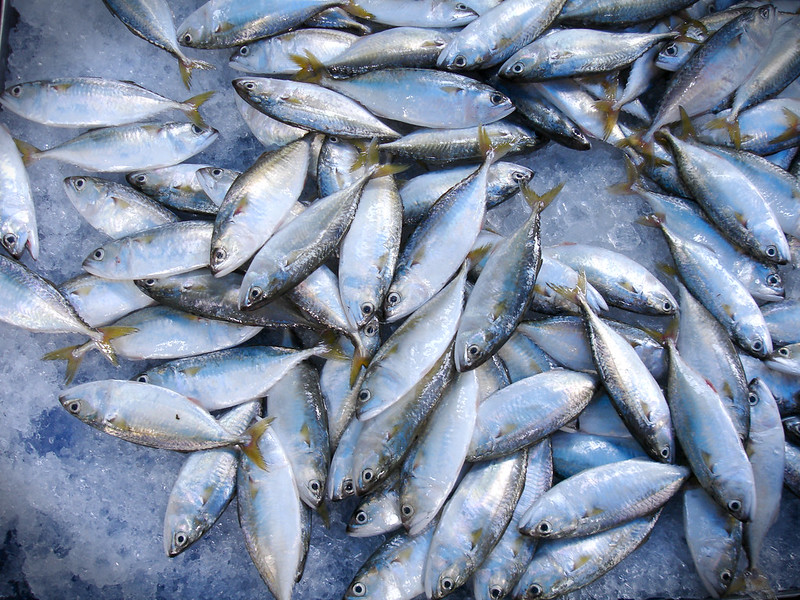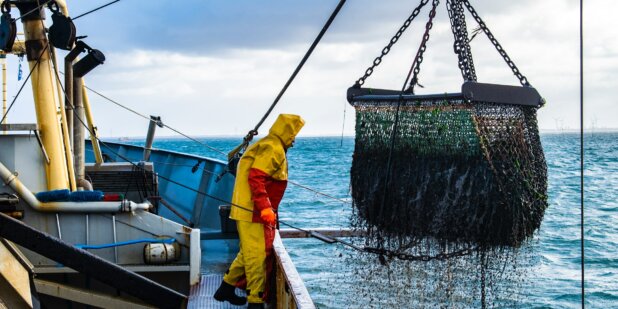- About
- Topics
- Picks
- Audio
- Story
- In-Depth
- Opinion
- News
- Donate
- Signup for our newsletterOur Editors' Best Picks.Send
Read, Debate: Engage.
Tuna is a popular fish. Although some restaurants offer expensive dishes made up of the most noble parts of tuna, the little cans are relatively cheap and can be easily found at any supermarket. It isn’t surprising, then, that the demand for this source of protein increased in 2020 due to the COVID-19 crisis, as indicated by the United Nations.
But, according to the UN, the overall demand of tuna is still on the rise: on average, more than 7 million metric tons of tuna and tuna-like species are harvested every year, making up 20 percent of all fisheries in the world.
Due to the lack of proper conservation rules and overfishing practices over many decades, several tuna species ended up facing serious threats. The UN points out that around one third of the stocks of seven main tuna species are estimated to be fished at biologically unsustainable levels.
These facts served as an inspiration for the award-winning Mexican writer and journalist Sabina Berman, who delved into a deep investigation of tuna fisheries and industry in Mazatlán in the west coast of Mexico.

© Napat Chaichanasiri
I had just finished reading Berman’s novel, The Women Who Dived into the Heart of the World, when FairPlanet began working on this dossier about fisheries in Latin America, and when I emailed her with an interview offer I was not certain whether she would reply. Luckily she did, and as soon as the next day we had an enlightening conversation by phone.
It is not often that we read a life-changing book and get to interview its author about it just a few days later. It was one of those once-in-a-lifetime opportunities to peer into the inner workings of how a story is created, which also presented a chance to spread the word about tuna conservation efforts.
The novel was not written specifically to denounce the state of affairs in the tuna industry; rather: "The story comes from a moment in my life where I want to understand how one can exist outside of ideologies or religions, outside of factual stories, and thus it arises in the search for that, of how to get out of the head and enter natural reality," Berman said. However, it is undeniable that after reading the almost 250 pages of the book, one may end up, at the very least, rethinking some habits.
"I am not a militant ecologist. My ideas about environmentalism are not to convince the human species. I tell stories and encourage people to individually transition," Berman told me in Spanishs.
The novel, centering around protagonist Karen Nieto - a girl who wants to save tuna fish from over-exploiting fisheries, was released in 2010 and subsequently published in 33 countries and translated into 13 languages. No wonder, since the journey of the autistic inheritor of a tuna company in Mazatlán, on the west coast of Mexico, is captivating. Avoiding any spoilers, let us just say that Karen has a unique outlook on the world and, throughout her childhood, adolescence and adulthood, will teach her surroundings - and the readers - to look at nature as an entity from which humans are not separate.
At university, Karen encounters René Descartes' classic statement - "I think, therefore I am" - and ends up disagreeing with him for the rest of her life. "This character is as human as any of us, but she is atypical, and she knows she exists and sometimes, with difficulty, she thinks," Berman explained after I asked why Karen’s character was written as an autistic person. "The novel that I write is an invitation to people to cross to the other side. To be like Karen, not to save the planet, but to be happy. Because happiness is in natural reality, it is not in thought."
"I am not a militant ecologist [...] I tell stories and encourage people to individually transition."
The inspiration to write such an informative novel came from investigation. As a journalist, Berman spent a long time in Mazatlán researching how the tuna fishing chain works, and even took a trip with crew members in vessels. "Well, I went tuna fishing in Mazatlán to see the tuna fisheries. I spoke with the fishermen, I spoke with the executives, I did an investigation on the matter and especially on the tuna itself. There are people who think that there is something of surrealism in the novel, and there is nothing of surrealism. Absolutely everything is possible," she says.
By "everything" Berman refers to the way tuna is caught in the seas, the labour conditions to which the companies' employees are subject to and the consequences of overfishing on the species. "Tuna, in the last 20 years, has decreased in size as it is described there, it has already become much less numerous," she mourned.
Now, we may have cause for celebration. Long-lasting ocean protection programs have managed to reduce the number of species caught in unsustainable levels, as well as the rate of bycatch and marine pollution. In the end of 2021, the International Union for Conservation of Nature (IUCN) announced the withdrawal of some tuna species from the most-endangered species list "thanks to countries enforcing more sustainable fishing quotas and successfully combating illegal fishing.”
This does not mean that they are completely safe: what IUCN indicates are transfers from the category of "endangered" to "least concern" and from "critically endangered" to "endangered,” depending on the case. Furthermore, they warn that the recovery is not universal: some species remain depleted to less than 5 percent of their original biomass.
Besides, the balance of this recovery is absolutely fragile. In 2020, the environmental journalist Tristan Baurick reported that the ease of protection in the Gulf of Mexico under Donald Trump's administration had already led to the reversal of some gains in tuna populations’ sizes.
Regarding the participation of workers in a system that, ultimately, is designed to kill another species, the Berman compares it to the acceptance of any other injustice in the world. "Human beings are like that. I also live in a country that treats immigrants very badly, and yet I go and sleep, and wake up the next day, I don't go and take up arms! That is the truth of how we human beings are! We endure some degree of injustice around us. [There is] a contradiction in human beings. The same [happens] in a tuna company," the journalist assessed. "I didn't know that they were aware that [their work] implicates a massacre, but they are obviously aware, they just, as typical human beings, accept their part in an animal killing system."
In the novel, the person who accepts the role of killing tuna for the good of the people involved - like workers and the population who needs it for sustenance - is Karen's aunt. In real life, Berman told me, the owner of the tuna company in Mazatlán, which inspired the story - Mrs Dolores - also had some dubious feelings about the activity she was helping carry out. "The big difference with Karen is that Mrs. Dolores is very socially-adapted and Karen is very maladjusted, and she doesn't care if the fishermen lose their jobs, if they have to start doing something else. She doesn't care, she cares more about tuna than human beings. That's why Karen, to be credible, had to be atypical."
"The women who dived into the heart of the world" is, to quote its author, the "story of someone who decided to save an animal species." And though fictional, it is incredibly life-like. The message we should take from the book, said Berman, is that eating as much fish as we currently globally do is unsustainable. "As a species, we are able to stop eating a species that we have almost wiped out. If we consumed 99 times less, we would have another relationship with nature," she said.
The ideal relationship between humans and fish, according to Berman, would be cooperative and comparable to the one we have with bees and their honey in non-industrial beekeeping. "We say that we take honey from bees. [But] bees can say that we are their partners, that we make luxurious habitats for them and that we share part of their honey in return."
Asked whether her personal dream is to save the tuna species, Berman answered in the afirmitive. "Yes, of course, I have made a personal effort to leave the world mediated by words and be in reality. We are all like Karen if we change that order of things (I exist, therefore I think). And it can be done. It is a relearning of how to live."
